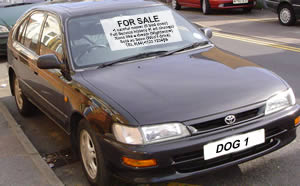How insurance calculate risk.
"Insuring you get the best deal"

How do insurance companies work out their premiums and why do the results vary so much?
Firstly looking at the history of insurance we see that groups of ship owners got together. The problem they faced was bankruptcy if their cargo was lost or their ship was sunk.
They devised a way of sharing the risk between them by all agreeing to pay a proportion of the loss each. If you had 100 ship owners and the average loss was say £10,000 over 1 year they would each pay £100 into the fund to cover the loss. It was better to guarantee to lose £100 than to risk losing £10,000.
Today insurance is a little more complex but the basic principle of sharing the risk is still there. The people behind the scenes who calculate risks are called underwriters and it is there job to determine who are most likely to claim
Each insurer will look at their own statistics of losses to calculate future risk. They will take into account, age, experience, and use of the vehicle. They will also look at your area and see what the accident, theft rate is and what the repair costs are.
An insurer will then profile their ideal risk, the driver offering them the most profit and calculate a rate to take of each of these drivers. Many insurers will deter what they perceive to be bad risks with high premiums.
Another factor is the amount paid out by and insurer. If an insurer can get away with cheap repairs and lower vehicle valuations they will be able to offer lower premiums. This is a big factor when choosing insurance and the adage of “you get what you pay for” rings true.
TorqueCars advise its members to get a variety of quotations from different insurers. Make sure you include a broker, a direct insurer and look at a price comparison site to see what is on offer. If you have special insurance requirements such as business use or a modified car you will need specialist insurer and a broker is probably the best place to go.
Brokers typically take a commission (10-20%) but as they generally issue the policy documents from their office on the insurers behalf this compares favourable with a direct insurers administrative costs. You will also get the help of the broker should you make a claim. This can increase the insurers costs as they have to pay out more and this is why insurers will prefer you to go direct to them.
A good broker is usually able to negotiate preferential rates from an insurer and is able to put leverage on the insurer to provide a good service.
To get cheaper insurance you have to make yourself an appealing “risk”. Agree to pay a higher proportion of your claim. Fit an alarm, take advanced driving lessons, limit your mileage or vehicle use.
Then you need to find the insurer that has the best experience with your driver group. Remember cheaper is not always better, if you make a claim you may regret cutting corners. Look at the range of quotes and avoid the stupidly expensive or cheap.
If you liked this page please share it with your friends, drop a link to it in your favourite forum or use the bookmarking options to save it to your social media profile.
Check out TorqueCars new YouTube channel, and see their awesome new content...
Feedback
Please use our forums if you wish to ask a tuning question, and please note we do not sell parts or services, we are just an online magazine.
Help us improve, leave a suggestion or tip
